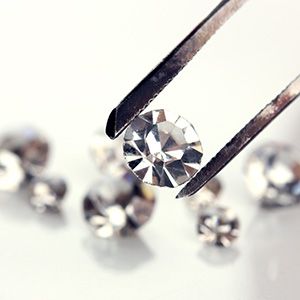
I’ve written about the National Advertising Division’s (NAD) marketing guidance for Diamond Foundry, but I wanted to take a look at this point in the company’s response to the NAD:
“Diamond Foundry submitted a number of reports and articles reporting on the environmental, labor, and competition practices of the mined diamond industry [including] a report from Human Rights Watch, “The Hidden Cost of Jewelry: Human Rights in Supply Chains and the Responsibility of Jewelry Companies” (2018); a report from Amnesty International, “Diamond Industry Fails to Clean Up Its Act” (November 12, 2018); a report from Amnesty International, “CAR: Companies Must Not Profit From Blood Diamonds” (September 30, 2015); a report from the World Diamond Council, “Diamond Mining and the Environment Fact Sheet (Diamond Facts); an article published in Vogue Business by George Arnett, “Are Mined Diamonds More Environmentally Friendly? Not So Fast” (June 25, 2019); an article in the New York Times by Stephen Labaton, “De Beers Agrees to Guilty Plea to Re-enter the U.S. Market” (July 10, 2004)…”
I find it fascinating that a company believes those issues have any relation to its compliance with the Federal Trade Commission’s well-established advertising guidelines. But this is about more than just one specific company, which has said it will follow the NAD’s recommendations, hopefully settling that issue. This is widespread. Let’s zoom out.
No doubt, diamond mining has its share of problems. (Gold mining probably has more, but that’s another topic.) If you think the industry is completely cleaned up, read the reports linked above, or watch the Kimberley Process Civil Society Coalition’s webinar posted here.
Yet, none of those reports are blanket condemnations or endorsements of a particular sector. Human Rights Watch tells JCK: “We have no position for or against synthetic diamonds.” One Sierra Leone activist said on the webinar, “Not every company is doing bad. We are not against [diamond] mining. It is our endowment. The minerals are meant for community beneficiation.”
Even if the diamond mining sector were as terrible as some believe—and it has plenty of both good and bad aspects—that doesn’t make every lab-grown seller a shining beacon of ethics. That sector also has plenty of good and bad. As I’ve argued repeatedly, people don’t buy from industries, they buy from companies.
Companies prove themselves ethical by acting ethically, not because they are competing against an industry that they, for self-serving reasons, have deemed bad. One has nothing to do with the other. Every business, and certainly every business’ production method, should be judged on its own merits.
This isn’t a political campaign, which generally involves a binary choice. Consumers today don’t have binary choices; they have endless options. And like many voters, if there’s too much general negativity, they may choose to stay home.
SCS Global Services is now provisionally certifying certain diamond companies as “sustainable.” Diamond Foundry has been certified carbon-neutral. That’s good. But even the SCS-certified companies admit that this is a process, that they still have much work to do and many benchmarks to hit. We can always do better. Just figuring out gold sourcing—which public companies must report to the SEC—is enough to keep a business busy for a long time. And for the record, recycled gold is not a magic cure-all. (See here, here, here, and here.)
Some companies call lab-created gems their solution for blood diamonds. I’m not so sure. As the Financial Action Task Force said, any untracked lab-grown diamond risks involvement in the same unsavory activities as natural stones. When warlords buy parcels in the jungle, they probably don’t screen them.
In addition, there’s more that concerned companies can do. The most serious recent instance of diamond-related violence occurred in Marange, Zimbabwe, in 2008. Afterward, many prominent cutters bought diamonds directly from companies in that area.
Any lab-grown diamond company is free to say it will not sell to or buy from any company or cutter that purchases diamonds from Marange now, since problems persist—or, if it really wants to take a stand, it can decline doing business with any company that bought diamonds from Marange back then. (We should note that it is illegal to import Marange goods into the United States.) They can also stay away from diamond centers that have opened their arms to Marange goods, or are reputed havens for money laundering.
Mind you, that’s not easy. There are some significant players involved.
I’ve had man-made gem executives tell me that it doesn’t matter where their diamonds come from. That is the exact same argument that natural diamond companies used to make years ago, and look where that got them.
For years, we have let an entire sector proclaim itself as “ethical” and “sustainable,” while providing little information—never mind audited information—about its methods, direct impact, or energy use. In the June 2019 Vogue article cited above, the International Grown Diamond Association said it was “in discussion with its members about redressing” that lack of data. But in the nearly two years since that article ran, we have seen no new info. I’ve been requesting it since 2014.
Alexander Weindling, the founder of Clean Origin, a lab-grown seller, likes to say, “The perfect is the enemy of the good.” That’s a fine expression. Here’s another one, that writers use: “The good is the enemy of the great.”
Sourcing raw materials is complicated. No one expects perfection. No one even expects greatness. But consumers expect honesty, transparency, and continuous improvement—and that means not just being better than your competitor, but being better than you were last year. This is particularly true if you bill yourself as a “sustainable,” “ethical,” or “transparent” company. When you’re busy pointing out other people’s flaws, you often don’t see your own.
Yes, there are plenty of bad actors in the industry. They bring the entire trade down. The way to raise it up is to set your own bar higher.
(Photo: Getty)
- Subscribe to the JCK News Daily
- Subscribe to the JCK Special Report
- Follow JCK on Instagram: @jckmagazine
- Follow JCK on X: @jckmagazine
- Follow JCK on Facebook: @jckmagazine







